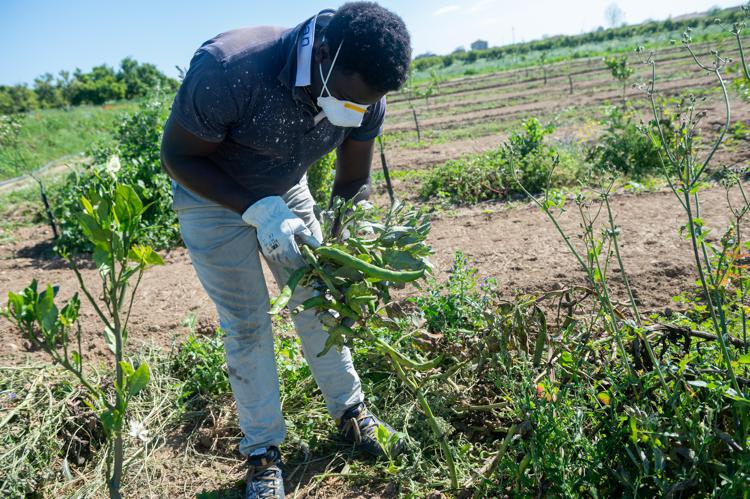

The Coronavirus pandemic could drive up what are already record migration levels, as more people seek work to support their families and to feed them amid "skyrocketing hunger" in the world, the United Nations warned in a new report released on Tuesday.
The pandemic has increased hunger and vulnerability among migrants, families reliant on remittances and communities forced from their homes by conflict, violence and disasters, said the report by the International Organization for Migration and the United Nations World Food Programme.
“The socio-economic impact of the pandemic is more devastating than the disease itself. Many people in low- and middle-income countries, who a few months ago were poor but just about getting by, now find their livelihoods have been destroyed," said WFP Executive Director, David Beasley.
"Remittances sent from workers abroad to their families at home have also dried up, causing immense hardship. As a result, hunger rates are sky-rocketing around the world,” Beasley added.
The social and economic toll of the COVID-19 pandemic could be devastating, IOM and WFP warn in the report.
The two UN agencies call on the world to avert catastrophe by stepping up support for immediate and growing humanitarian needs, addressing the socioeconomic impacts of the crisis and ensuring that the planet's most vulnerable are not forgotten.
"The impact of the COVID-19 crisis on health and human mobility threatens to roll back global commitments, including to the Global Compact on Migration, and hinder ongoing efforts to support those in need of assistance," said IOM’s Director-General, Antonio Vitorino.
"It is our collective responsibility to safeguard the rights of people on the move and ensure their protection from further harm,” Vittorino added.
The pandemic has an unprecedented impact on the ways people move, the report said.
Measures put in place in over 220 countries, territories or areas to contain the spread of the disease have limited human mobility and opportunities to work and earn an income, straining the ability of migrants and people who have fled their homes to afford food and to meet other basic needs, the report underlined.
Food insecurity and displacement are closely intertwined. Hunger – especially when combined with conflict – is a critical factor propelling migration, the report noted.
Nine out of ten of the world’s worst food crises are in countries with the largest number of internally displaced persons, the majority of whom are located in countries plagued by acute food insecurity and malnutrition.
The world’s 164 million migrant workers, especially those working in the informal sector, are some of the worst hit by the COVID-19 pandemic as they often work for low wages in temporary or seasonal jobs without access to social protection systems, the report pointed out.
During economic crises, migrant workers are often the first to lose their jobs. And at the same time, disruptions to seasonal agricultural work could have ramifications for the production, processing and distribution of food, which could affect its availability and affordability at local and regional levels, the report said.
Without sustained incomes, many migrants will not only be forced to return home but will also cut their remittances - money they send home- which are a lifeline for around 800 million (one in nine) people in the world, the report warned.
The World Bank has predicted a 14 percent drop in remittances to low- and middle-income countries by 2021.
These dwindling livelihood opportunities for migrants due to the pandemic could be devastating, also for food security, the report predicts.
By the end of next year, at least 33 million more people could be driven into hunger due to the expected drop in remittances alone, WFP forecasts.
The report urges nations to do their utmost to mitigate the pandemic's immediate impact on the poorest while ensuring longer term investments that ensure a pathway to recovery.